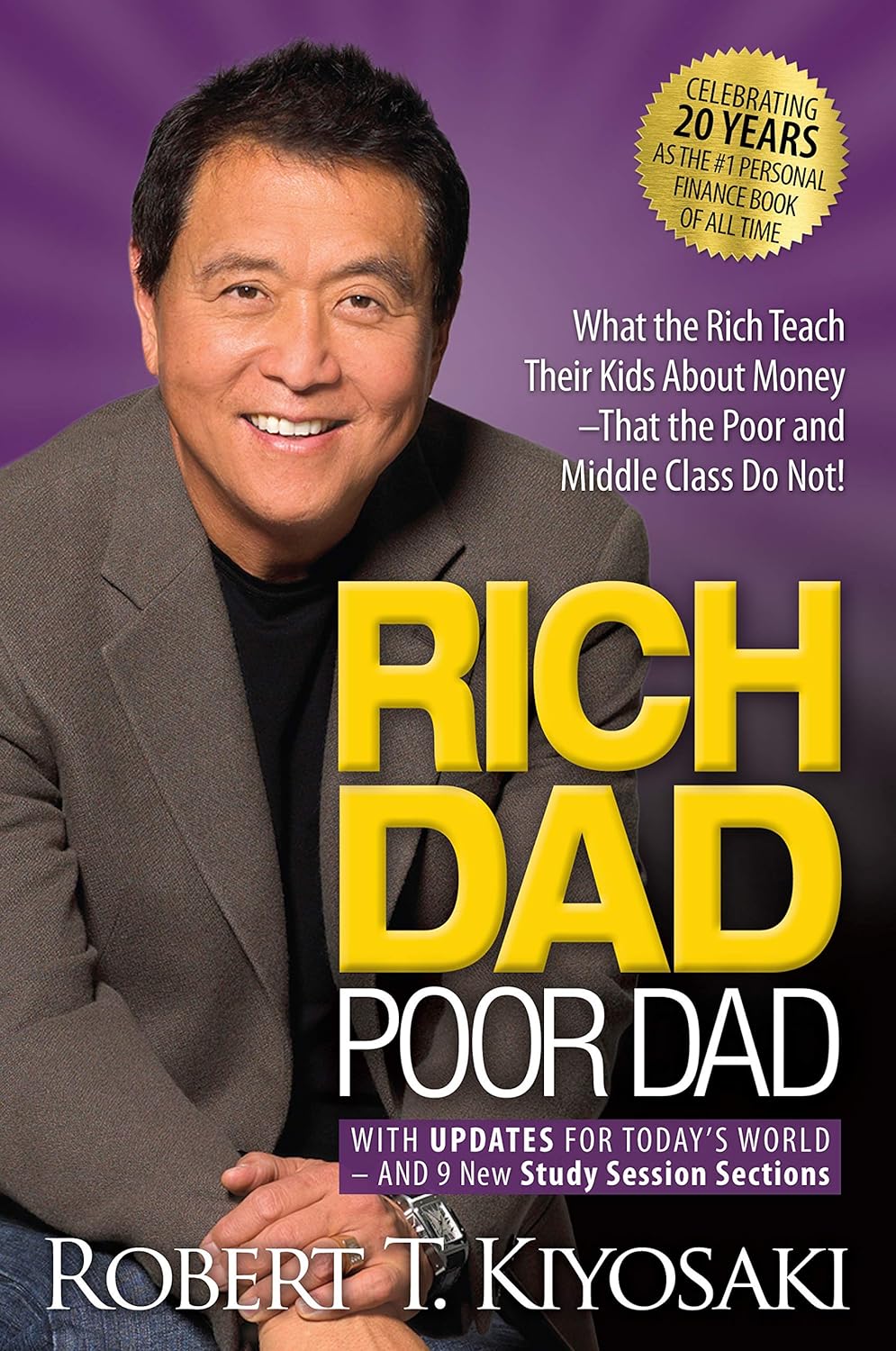Introduction to “Rich Dad Poor Dad”
Rich Dad Poor Dad by Robert Kiyosaki is more than just a book—it’s a movement that challenges traditional views on money and wealth. Published in 1997, it has become a global bestseller, inspiring millions to rethink their financial habits and prioritize financial independence. But what makes this book such a game-changer?
About the Author: Robert Kiyosaki
Robert Kiyosaki is an entrepreneur, educator, and advocate for financial literacy. Through Rich Dad Poor Dad, he shares lessons from his life, comparing the financial philosophies of his “rich dad” (his friend’s father) and “poor dad” (his biological father). This dual perspective adds depth and relatability to the book.
The Central Theme of the Book
Rich Dad vs. Poor Dad
At its core, the book contrasts two vastly different approaches to money.
- Rich Dad: Emphasizes investing, creating assets, and building passive income.
- Poor Dad: Advocates for job security, saving, and traditional education.
This juxtaposition highlights how mindset shapes financial outcomes.
Key Lessons in “Rich Dad Poor Dad”
The Importance of Financial Education
Kiyosaki argues that traditional schooling fails to teach financial literacy. He encourages readers to educate themselves on money matters, such as understanding investments and managing cash flow.
The Concept of Cash Flow
One of the book’s standout lessons is the cash flow quadrant—income, expenses, assets, and liabilities. Kiyosaki emphasizes building assets that generate income rather than accumulating liabilities disguised as assets.
Mindset Shift from Employee to Investor
The book challenges the “employee mindset” of working for money and promotes becoming an investor or entrepreneur where money works for you.
The Writing Style of the Book
Kiyosaki’s conversational tone and use of storytelling make complex financial concepts easy to grasp. By sharing personal anecdotes and relatable examples, he keeps readers engaged while delivering impactful lessons.
Criticisms of “Rich Dad Poor Dad”
Despite its popularity, the book isn’t without flaws.
- Practicality Issues: Critics argue that the book lacks actionable steps for building wealth.
- Over-simplification: Some concepts may oversimplify financial challenges, leading to unrealistic expectations.
Influence on Readers
Rich Dad Poor Dad has left an indelible mark on readers, motivating many to take charge of their finances. It has sparked interest in entrepreneurship, investing, and financial education.
Comparison with Other Personal Finance Books
Compared to books like The Millionaire Next Door, which focuses on frugality, Rich Dad Poor Dad emphasizes mindset and financial independence. While both have merits, Kiyosaki’s work resonates more with those seeking alternative paths to wealth.
Is “Rich Dad Poor Dad” Still Relevant Today?
Absolutely. The principles of investing, financial education, and cash flow remain timeless, even in today’s economy. However, readers must adapt the lessons to modern contexts, such as the rise of digital investments.
Conclusion
Rich Dad Poor Dad is a thought-provoking guide that encourages readers to think differently about money and wealth. While it may not provide a step-by-step financial plan, its emphasis on mindset and education makes it a valuable read for anyone looking to break free from financial constraints.
FAQs
- Who should read Rich Dad Poor Dad?
Anyone interested in improving their financial literacy, especially beginners. - Does the book offer practical steps to build wealth?
While it focuses more on mindset, it provides foundational concepts for financial growth. - What is the biggest takeaway from the book?
The importance of building assets and achieving financial independence. - Is Rich Dad Poor Dad suitable for beginners in finance?
Yes, its conversational tone and relatable examples make it ideal for novices. - How has the book influenced financial education globally?
It has popularized the idea of financial literacy, inspiring countless courses, seminars, and programs.
